by Syarif Hidayat*
 In the name of Allah, the Beneficent, the Merciful . The God Almighty Allah warned in Al-Qur’an more than 1430 years ago: “And verily, We will make them taste of the near torment (i.e. the torment in the life of this world, i.e. disasters, calamities, etc.) prior to the supreme torment (in the Hereafter), in order that they may (repent and) return (i.e. accept Islâm). And who does more wrong than he who is reminded of the Ayât (proofs, evidences, verses, lessons, signs, revelations, etc.) of his Lord, then turns aside therefrom? Verily, We shall exact retribution from the Mujrimûn (criminals, disbelievers, polytheists, sinners, etc.)” (Al-Qur’an, Surah As-Sajda, Verses 21-22)
In the name of Allah, the Beneficent, the Merciful . The God Almighty Allah warned in Al-Qur’an more than 1430 years ago: “And verily, We will make them taste of the near torment (i.e. the torment in the life of this world, i.e. disasters, calamities, etc.) prior to the supreme torment (in the Hereafter), in order that they may (repent and) return (i.e. accept Islâm). And who does more wrong than he who is reminded of the Ayât (proofs, evidences, verses, lessons, signs, revelations, etc.) of his Lord, then turns aside therefrom? Verily, We shall exact retribution from the Mujrimûn (criminals, disbelievers, polytheists, sinners, etc.)” (Al-Qur’an, Surah As-Sajda, Verses 21-22)
Ariel Sharon, whose half century as a military and political leader in Israel was marked with victories and controversies, died at the age of 85, Saturday, 11 January, 2014 after eight years of fighting for his life in a coma.
On January 4, 2006, Sharon suffered a stroke and went into a coma, from which he never recovered. He was being treated at the Sheba Medical Center near Tel Aviv. Sharon’s health condition deteriorated on January 1, after he suffered kidney problems following surgery. He was the prime minister of the Israeli regime from 2001 to 2006, and was directly responsible for war crimes against Palestinians and Lebanese. He died after eight years of fighting for his life in a coma in his hospital bed.
Also Read: Gaza Cries Out, the World Stays Silent: A Wounded Humanity
Ariel Sharon (Hebrew: About this sound אריאל שרון, Arabic: أرئيل شارون, Ariʼēl Sharōn, also known by his diminutive Arik, אַריק, born Ariel Scheinermann, אריאל שיינרמן; 26 February 1928 – 11 January 2014 was an Israeli statesman and army general, who served as the 11th Prime Minister of Israel. He was born on 26 February 1928 in Kfar Malal, an agricultural moshav, then in the British Mandate of Palestine, to a family of Belarusian Jews—Shmuel Scheinerman (1896–1956) of Brest-Litovsk and Dvora Scheinerman (1900–1988) of Mogilev.
His parents met at the Tbilisi State University, Georgia, where Sharon’s father was studying agronomy and his mother had just started her fourth year of medical studies. As Bolshevik forces advanced towards independent Georgia, his parents emigrated to the British Mandate of Palestine, fleeing the pogroms associated with the Russian Civil War.
The family arrived in the Third Aliyah and settled in a Kfar Malal, a socialist, secular community where, despite being Mapai supporters, they were known to be contrarians against the prevailing community consensus:
The Scheinermans’ eventual ostracism … followed the 1933 Arlozorov murder when Dvora and Shmuel refused to endorse the Labor movement’s anti-Revisionist calumny and participate in Bolshevic-style public revilement rallies, then the order of the day. Retribution was quick to come. They were expelled from the local health-fund clinic and village synagogue. The cooperative’s truck wouldn’t make deliveries to their farm nor collect produce.
Also Read: Indo Defence Expo and Forum; Sharing Responsibility of Humankind and Environment
Four years after their arrival at Kfar Malal, the Sheinermans had a daughter, Yehudit (Dita), and Ariel was born two years later. At age 10, Sharon entered the Zionist youth movement Hassadeh. As a young teenager, he first began to take part in the armed night-patrols of his moshav. In 1942 at the age of 14, Sharon joined the Gadna, a paramilitary youth battalion, and later the Haganah, the underground paramilitary force and the Jewish military precursor to the Israel Defense Forces (IDF).
 The infamous arrogant statements of Sharon
The infamous arrogant statements of Sharon
Ariel Sharon, demonstrating the Israeli nuclear arsenal arrogance, says things like: “We are much more important than (Americans) think. We can take the Middle East with us whenever we go” and “Arabs may have the oil, but we have the matches.”
Also Read: Safiya Saeed: From Somali Migrant to First Hijab-Wearing Mayor of Sheffield
“Every time we do something you tell me America will do this and will do that . . . I want to tell you something very clear: Don’t worry about American pressure on Israel. We, the Jewish people, control America, and the Americans know it.” – Israeli Prime Minister, Ariel Sharon, October 3, 2001, to Shimon Peres, as reported on Kol Yisrael radio.(recorded)
“I don’t mind if after the job is done you put me in front of a Nuremberg Trial and then jail me for life. Hang me if you want, as a war criminal. What you don’t understand is that the dirty work of Zionism is not finished yet, far from it.” – Former Prime Minister of Israel, Ariel Sharon, speaking to Amos Oz, editor of Davar, on Dec. 17, 1982.
“Everybody has to move, run and grab as many hilltops as they can to enlarge the settlements because everything we take now will stay ours… Everything we don’t grab will go to them.” – Ariel Sharon, Israeli Foreign Minister, addressing a meeting of militants from the extreme right-wing Tsomet Party, Agence France Presse, November 15, 1998.
Also Read: Why Food Safety is Essential During Hajj Services?
Palestinians and World Reactions
The controlled media whitewashes Ariel Sharon’s long history as a master of Zionist terrorism in the same way that it censors all discussion of the criminal and war crimes records of Sharon ‘The Butcher.”.
“Ariel Sharon wanted to erase the Palestinian people from the map … He wanted to kill us, but at the end of the day, Sharon is dead and the Palestinian people are alive.” – Tawfik Tirawi, who served as Palestinian intelligence chief when Sharon was prime minister.
Jibril Rajoub, a top Palestinian official of the Fatah party, described Sharon as a criminal and expressed regret that he had never appeared before the International Criminal Court.
Also Read: Indonesia Sign Language Mushaf Qur’an; A Sustainable Gift in Celebrating Pancasila Birthday
“Sharon was a criminal, responsible for the assassination of (former Palestinian President Yasser) Arafat, and we would have hoped to see him appear before the International Criminal Court as a war criminal,” he added.
Salah el-Bardaweel, a spokesman for Hamas noted in a separate statement that Sharon was a “criminal,” adding, “We pray to Allah that Sharon and all the Zionist leaders who committed massacres against our people to go to hell.”
“When the Palestinian people remember Sharon, they only remember pain, blood, torture, displacement and crimes. We will never feel sorry for his death,” he added.
Hamas also said the death of ex-Israeli prime minister was a “historic moment,” that marks the “disappearance of a criminal whose hands were covered with Palestinian blood.”
Also Read: Leila Khaled, The Icon of Palestinian Women’s Resistance
Palestinians in Lebanon’s Ain al-Hilweh refugee camp celebrated Sharon’s death by firing into the air. The camp in southern Lebanon houses some 70,000 Palestinians.
Sharon led Israel into a war with Lebanon in 1982 and was responsible for the massacre of hundreds of Palestinians at Sabra and Shatila refugee camps outside Beirut, after his forces allowed allied Lebanese militias into the camps.
Widespread reaction
Also Read: The Twilight of the Zionist Israeli State
There has been widespread reaction in Israel, the rest of the Middle East and across the world to the death of Ariel Sharon aged 85 at the Sheba Medical Centre near Tel Aviv.
World leaders and senior Israeli figures spoke of the dedication of his life to Israel, but many Palestinians said they were glad he was gone.
There was little sorrow among Palestinians at Ariel Sharon’s death, both in the West Bank and the Gaza Strip. At Khan Younis in Gaza, sweets were handed out and posters of the late Israeli prime minister was burned.
“We don’t say good riddance but I don’t think he has left us anything positive,” said Hanan Ashrawi, a member of the Palestinian Legislative Council. She told the BBC his legacy was one of violence, bloodshed and cruelty. Israel’s withdrawal from the Gaza Strip in 2005 was a “unilateral redeployment” that maintained a “very strict siege”.
Also Read: Prof. Abdul Fatah El-Awaisi and the Intellectual Roadmap for the Liberation of Al-Quds
Former minister Ghassan Khatib said “in all his history, he played a negative role” and a senior official in the Fatah movement, Jibril Rajoub, condemned him as a criminal whom Palestinians had wanted to see tried as a war criminal.
Khalil al-Haya of Gaza’s Islamist militant Hamas movement said after eight years Ariel Sharon was going in the same direction as “other tyrants and criminals whose hands were covered with Palestinian blood”.
Palestinian figures took a harsher view. Tawfik Tirawi, who served as Palestinian intelligence chief when Sharon was prime minister, said: “He wanted to erase the Palestinian people from the map … He wanted to kill us, but at the end of the day, Sharon is dead and the Palestinian people are alive.”
Khalil al-Haya, a leader in the Islamic militant group Hamas which governs the Gaza Strip, applauded his departure. “After eight years, he is going in the same direction as other tyrants and criminals whose hands were covered with Palestinian blood.”
Also Read: Dr. Joserizal Jurnalis: Founder of MER-C and Indonesia’s Humanitarian Icon on the Global Stage
Jibril Rajub, a senior official of the Fatah party, expressed regret that Sharon was never taken before the International Criminal Court and suggested he had been involved in the 2004 death of Palestinian President Yasser Arafat, whom many believe was poisoned.
“Sharon was a criminal, responsible for the assassination of (Palestinian president Yasser) Arafat, and we would have hoped to see him appear before the International Criminal Court as a war criminal,” Mr Rajub said.
Human rights groups noted his association with abuses such as the 1982 Sabra and Shatila massacres in a Palestinian refugee camp in Lebanon, his implication in which forced him to step down as defence minister a year later.
“His passing is another grim reminder that years of virtual impunity for rights abuses have done nothing to bring Israeli-Palestinian peace any closer,” said Leah Whitson, Middle East Director of Human Rights Watch.
Also Read: Crossing Zebra Cross with Earphone Attached on Two Ears: Keep Your Safety by Yourself Not Others
The organisation Human Rights Watch said Ariel Sharon had died without facing justice for the massacre at Sabra and Shatila. An Israeli commission of inquiry found him personally responsible for failing to prevent the massacre.
The Crimes of Zionist ‘The Butcher’
Alexander Cockburn And Jeffrey St. Clair in their article titled: “Return of the Terrorist – The Crimes of Ariel Sharon” published Counter Punch, write “Some incorrigible optimists have suggested that only a right-wing extremist of the notoriety of Likud leader Ariel Sharon will have the credentials to broker any sort of lasting settlement with the Palestinians. Maybe so. History is not devoid of such examples. But Sharon?”
Sharon’s history offers a monochromatic record of moral corruption, with a documented record of war crimes going back to the early 1950s. He was born in 1928 and as a young man joined the Haganah, the underground military organization of Israel in its pre-state days. In 1953 he was given command of Unit 101, whose mission is often described as that of retaliation against Arab attacks on Jewish villages.
In fact, as can be seen from two terrible onslaughts, one of them very well known, Unit 101′s purpose was that of instilling terror by the infliction of discriminate, murderous violence not only on able bodied fighters but on the young, the old, the helpless.
Sharon’s first documented sortie in this role was in August of 1953 on the refugee camp of El-Bureig, south of Gaza. An Israeli history of the 101 unit records 50 refugees as having been killed; other sources allege 15 or 20. Major-General Vagn Bennike, the UN commander, reported that “bombs were thrown” by Sharon’s men “through the windows of huts in which the refugees were sleeping and, as they fled, they were attacked by small arms and automatic weapons”.
In October of 1953 came the attack by Sharon’s unit 101 on the Jordanian village of Qibya, whose “stain” Israel’s foreign minister at the time, Moshe Sharett, confided to his diary “would stick to us and not be washed away for many years”. He was wrong.
Though even strongly pro-Israel commentators in the West compared it to Lidice, Qibya and Sharon’s role are scarcely evoked in the West today, least of all by journalists such as Deborah Sontag of the New York Times who recently wrote a whitewash of Sharon, describing him as “feisty”, or the Washington Post’s man in Jerusalem who fondly invoked him after his fateful excursion to the Holy Places in Jerusalem as “the portly old warrior”.
Israeli historian Avi Shlaim describes the massacre thus: “Sharon’s order was to penetrate Qibya, blow up houses and inflict heavy casualties on its inhabitants. His success in carrying out the order surpassed all expectations. The full and macabre story of what happened at Qibya was revealed only during the morning after the attack.
The village had been reduced to rubble: forty-five houses had been blown up, and sixty-nine civilians, two thirds of them women and children, had been killed. Sharon and his men claimed that they believed that all the inhabitants had run away and that they had no idea that anyone was hiding inside the houses.”
The UN observer on the scene reached a different conclusion: “One story was repeated time after time: the bullet splintered door, the body sprawled across the threshhold, indicating that the inhabitants had been forced by heavy fire to stay inside until their homes were blown up over them.”
The slaughter in Qibya was described contemporaneously in a letter to the president of the United Nations Security Council dated 16 October 1953 (S/3113) from the Envoy Extraordinary and Minister Plenipotentiary of Jordan to the United States. On 14 October 1953 at 9:30 at night, he wrote, Israeli troops launched a battalion-scale attack on the village of Qibya in the Hashemite Kingdom of Jordan (at the time the West Bank was annexed to Jordan).
According to the diplomat’s account, Israeli forces had entered the village and systematically murdered all occupants of houses, using automatic weapons, grenades and incendiaries. On 14 October, the bodies of 42 Arab civilians had been recovered; several more bodies were still under the wreckage.
Forty houses, the village school and a reservoir had been destroyed. Quantities of unused explosives, bearing Israel army markings in Hebrew, had been found in the village. At about 3 a.m., to cover their withdrawal, Israeli support troops had begun shelling the neighbouring villages of Budrus and Shuqba from positions in Israel.
And what of Sharon’s conduct when he was head of the Southern Command of Israel’s Defense Forces in the early 1970s? The Gaza “clearances” were vividly described by Phil Reeves in a piece in The London Independent on January 21 of this year.
“Thirty years have elapsed since Ariel Sharon, favourite to win Israel’s forthcoming election, was the head of the Israel Defence Forces’ southern command, charged with the task of ‘pacifying’ the recalcitrant Gaza Strip after the 1967 war. But the old men still remember it well.
Especially the old men on Wreckage Street. Until late 1970, Wreckage, or Had’d, Street wasn’t a street, just one of scores of narrow, nameless alleys weaving through Gaza City’s Beach Camp, a shantytown cluttered with low, two-roomed houses, built with UN aid for refugees from the 1948 war who then, as now, were waiting for the international community to settle their future.
The street acquired its name after an unusually prolonged visit from Mr Sharon’s soldiers. Their orders were to bulldoze hundreds of homes to carve a wide, straight street. This would allow Israeli troops and their heavy armored vehicles to move easily through the camp, to exert control and hunt down men from the Palestinian Liberation Army.
“‘They came at night and began marking the houses they wanted to demolish with red paint,’ said Ibrahim Ghanim, 70, a retired labourer. ‘In the morning they came back, and ordered everyone to leave. I remember all the soldiers shouting at people, Yalla, yalla, yalla, yalla! They threw everyone’s belongings into the street. Then Sharon brought in bulldozers and started flattening the street. He did the whole lot, almost in one day. And the soldiers would beat people, can you imagine? Soldiers with guns, beating little kids!’ By the time the Israeli army’s work was done, hundreds of homes were destroyed, not only on Wreckage Street but throughout the camp, as Sharon ploughed out a grid of wide security roads. Many of the refugees took shelter in schools, or squeezed into the already badly over-crowded homes of relatives. Other families, usually those with a Palestinian political activist, were loaded into trucks and taken to exile in a town in the heart of the Sinai Desert, then controlled by Israel.”
As Reeves reported, the devastation of Beach Camp was far from the exception. “In August 1971 alone, troops under Mr Sharon’s command destroyed some 2,000 homes in the Gaza Strip, uprooting 16,000 people for the second time in their lives. Hundreds of young Palestinian men were arrested and deported to Jordan and Lebanon.
Six hundred relatives of suspected guerrillas were exiled to Sinai. In the second half of 1971, 104 guerrillas were assassinated. ‘The policy at that time was not to arrest suspects, but to assassinate them’, said Raji Sourani, director of the Palestinian Centre for Human Rights in Gaza City”.
Israeli complacency leading to their initial defeat by the Egyptians in the 1973 war was in part nurtured by the supposed impregnability of the “Bar Lev line” constructed by Sharon on the east bank of the Suez canal. The Egyptians pierced the line without undue difficulty.
In 1981 Sharon, then minister of defense, paid a visit to Israel’s good friend, President Mobutu of Zaire. Lunching on Mobutu’s yacht the Israeli party was asked by their host to use their good offices to get the US Congress to be more forthcoming with aid. This the Israelis managed to accomplish. As a quid pro quo Mobutu reestablished diplomatic relations with Israel.
This was not Sharon’s only contact with Africa. Among friends he relays fond memories of trips to Angola to observe and advise the South African forces then fighting in support of the murderous CIA stooge Jonas Savimbi.
 Sharon oversaw the Sabra and Shatilla massacres
Sharon oversaw the Sabra and Shatilla massacres
As defense minister in Menachem Begin’s second government, Sharon was the commander who led the full dress 1982 assault on Lebanon, with the express design of destroying the PLO, driving as many Palestinians as possible to Jordan and making Lebanon a client state of Israel. It was a war plan that cost untold suffering, around 20,000 Palestinian and Lebanese lives, and also the deaths of over one thousand Israeli soldiers.
The Israelis bombed civilian populations at will. Sharon also oversaw the infamous massacres at Sabra and Shatilla refugee camps. The Lebanese government counted 762 bodies recovered and a further 1,200 buried privately by relatives. However, the Middle East may have been spared worse, thanks to Menachem Begin. Just as the ’82 war was getting under way, Sharon approached Begin, then Prime Minister, and suggested that Begin cede control over Israel’s nuclear trigger to him. Begin had just enough sense to refuse.
The slaughter in the two contiguous camps at Sabra and Shatilla took place from 6:00 at night on September 16, 1982 until 8:00 in the morning on September 18, 1982, in an area under the control of the Israel Defense Forces. The perpetrators were members of the Phalange militia, the Lebanese force that was armed by and closely allied with Israel since the onset of Lebanon’s civil war in 1975. The victims during the 62-hour rampage included infants, children, women (including pregnant women), and the elderly, some of whom were mutilated or disemboweled before or after they were killed.
An official Israeli commission of inquiry – chaired by Yitzhak Kahan, president of Israel’s Supreme Court – investigated the massacre, and in February 1983 publicly released its findings (without Appendix B, which remains secret until now).
Amid desperate attempts to cover up the evidence of direct knowledge of what was going on by Israeli military personnel, the Kahan Commission found itself compelled to find that Ariel Sharon, among other Israelis, had responsibility for the massacre. The commission’s report stated: “It is our view that responsibility is to be imputed to the Minister of Defense for having disregarded [“entirely cognizant of” would have been a better choice of words] the danger of acts of vengeance and bloodshed by the Phalangists against the population of the refugee camps, and having failed [i.e.”eagerly taken this into consideration”] to take this danger into account when he decided to have the Phalangists enter the camps.
In addition, responsibility is to be imputed to the Minister of Defense for not ordering appropriate measures for preventing or reducing the danger of massacre as a condition for the Phalangists’ entry into the camps. These blunders constitute the non-fulfillment of a duty with which the Defense Minister was charged”. (For those who want to refresh their memories of Operation Peace for Galilee, of the massacres and the Kahan coverup we recommend Noam Chomsky’s The Fateful Triangle.)
Sharon refused to resign. Finally, on February 14, 1983, he was relieved of his duties as defense minister, though he remained in the cabinet as minister without portfolio.
Sharon’s career was in eclipse, but he continued to burnish his credentials as a Likud ultra. Sharon has always been against any sort of peace deal, unless on terms entirely impossible for Palestinians to accept. As Nehemia Strasler outlined in Ha’aretz on January 18 of this year, in 1979, as a member of Begin’s cabinet, he voted against a peace treaty with Egypt.
In 1985 he voted against the withdrawal of Israeli troops to the so-called security zone in Southern Lebanon. In 1991 he opposed Israel’s participation in the Madrid peace conference. In 1993 he voted No in the Knesset on the Oslo agreement. The following year he abstained in the Knesset on a vote over a peace treaty with Jordan. He voted against the Hebron agreement in 1997 and objected to the way in which the withdrawal from southern Lebanon was conducted.
As Begin’s minister of agriculture in the late 1970s he established many of the West Bank settlements that are now a major obstruction to any peace deal. His present position? Not another square inch of land for Palestinians on the West Bank. He will agree to a Palestinian state on the existing areas presently under either total or partial Palestinian control, amounting to merely 42 per cent of the West Bank. Israel will retain control of the highways across the West Bank and the water sources. All settlements will stay in place with access by the IDF to them. Jerusalem will remain under Israeli sovereignty and he plans to continue building around the city. The Golan heights would remain under Israel’s control.
It can be strongly argued that Sharon represents the long-term policy of all Israeli governments, without any obscuring fluff or verbal embroidery. For example: Ben-Gurion approved the terror missions of Unit 101. Every Israeli government has condoned settlements and building around Jerusalem. It was Labor’s Ehud Barak who okayed the military escort for Sharon on his provocative sortie that sparked the second Intifada and Barak who has overseen the lethal military repression of recent months.
But that doesn’t diminish Sharon’s sinister shadow across the past half century. That shadow is better evoked by Palestinians and Lebanese grieving for the dead, the maimed, the displaced, or by a young Israeli woman, Ilil Komey, 16, who confronted Sharon recently when he visited her agricultural high school outside Beersheva. “I think you sent my father into Lebanon”, Ilil said. “Ariel Sharon, I accuse you of having made me suffer for 16 some odd years. I accuse you of having made my father suffer for over 16 years. I accuse you of a lot of things that made a lot of people suffer in this country. I don’t think that you can now be elected as prime minister”.
Ilil was wrong. The Butcher was there in power. And the bloodbath happened. (T/E1/IR)
*Editor on MINA (He can be contacted via email: [email protected])
Mi’raj Islamic News Agency (MINA)
This article has also been published in the website: WE ARE REALLY IN FAVOR OF WORLD PEACE!
Bibliotheque:
1. http://www.quranexplorer.com/Quran/Default.aspx
3.http://www.counterpunch.org/








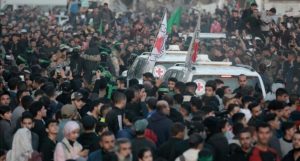
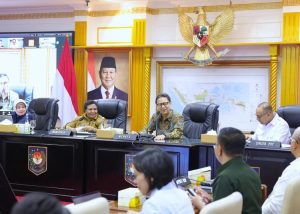
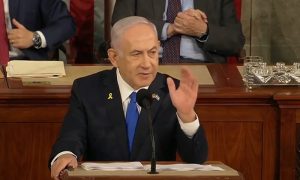
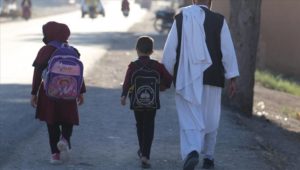
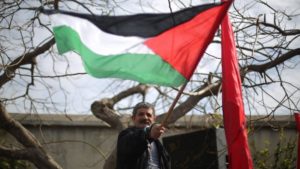
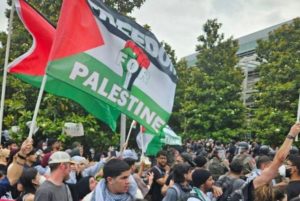






 Mina Indonesia
Mina Indonesia Mina Arabic
Mina Arabic